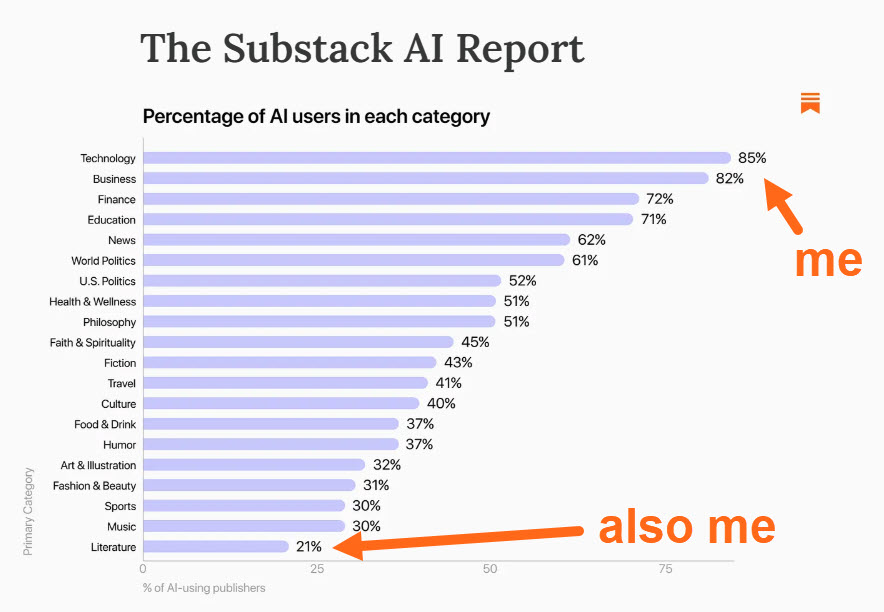Where to draw the line with genAI
I’m a member of the group that’s most bullish on generative AI and the group that’s the least. That’s because I’m a marketing strategist at a tech company by day and an aspiring novelist by night. The latest survey from Substack illustrates the extreme divide between these two groups.

Wearing both of these hats, here are major issues I see:
- Anything created substantially using genAI can’t be copyrighted. (And if governments are smart, that will never change.) This is why agents and publishers want to know if you’ve used AI in your book, because it could potentially zero out the commercial value of your book. AI-generated images for covers are similarly problematic.
- Using genAI opens you up to plagiarism lawsuits until the law gets settled here, which could take years. This is why some of our Fortune 1000 clients write into our agency service contacts that we can’t use genAI for any of the work we do for them. They don’t want the legal risk since they’re big legal targets already. The Big Five publishers surely feel the same way.
Of course, many writers feel genAI is morally wrong because it’s essentially a plagiarism engine. And their minds won’t change even if the courts rule that genAI’s use of copyrighted material is transformative (which is highly likely to happen).
But putting those feelings aside for a moment, let’s recognize that some genAI uses don’t run afoul of those two issues above because they’re noncommercial. For example, turning your human-authored book summary into social media posts to promote your book. Or creating AI-images of your protagonists based on the descriptions in your book to use on social. Or taking the short author bio you wrote for your jacket copy, adding a bunch of details, and having genAI draft a long bio for your website.
Let’s also acknowledge that genAI is a huge boon for people with dyslexia and ADHD, as well as non-native English speakers.
All of that said, I’ve made the personal decision not to use genAI in any way for the writing of my novels, including AI-infused editing tools like Grammarly. At the end of this very long road, for better or worse, I want to be able to take full credit (along with my editors and beta readers) for everything in my novels, including the human imperfections.
To receive future posts or to become a Patron and support my dystopian sci-fi novel and get special thank-you goodies upon its publication, subscribe on Substack →